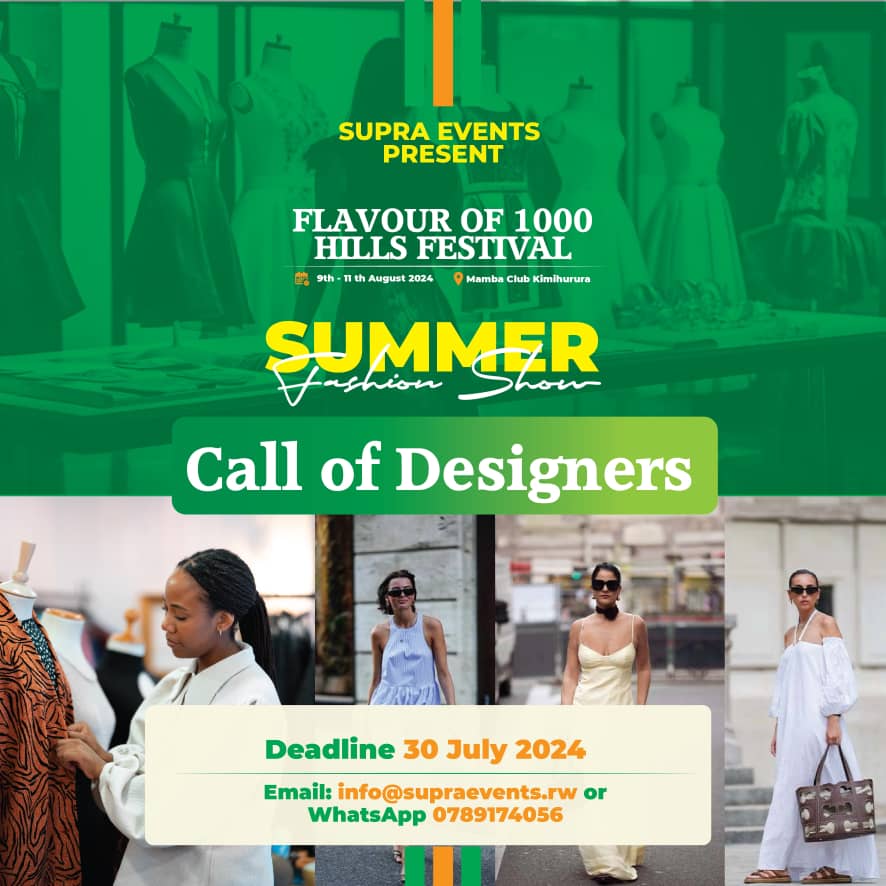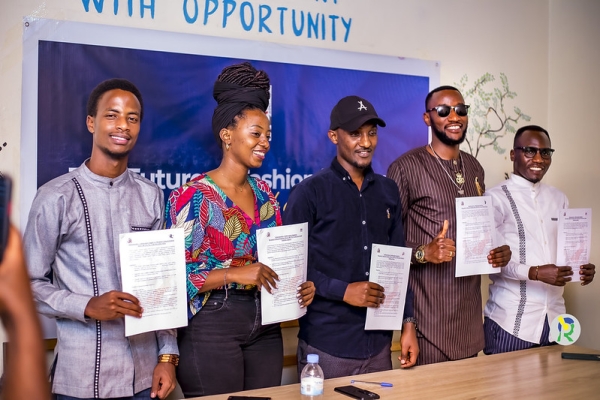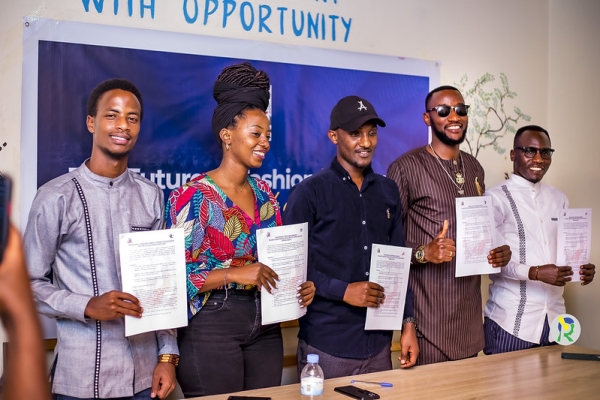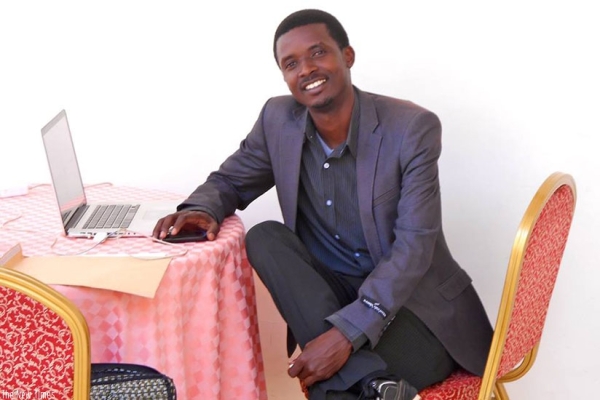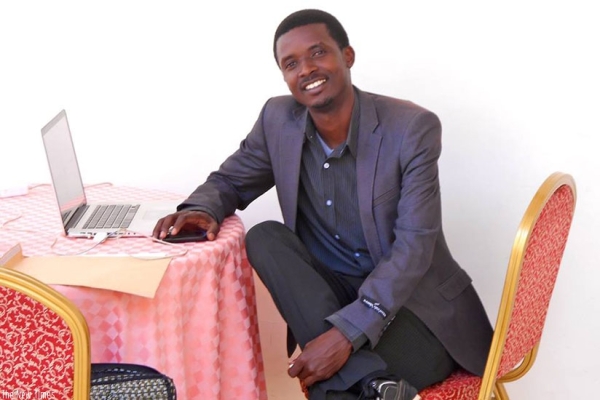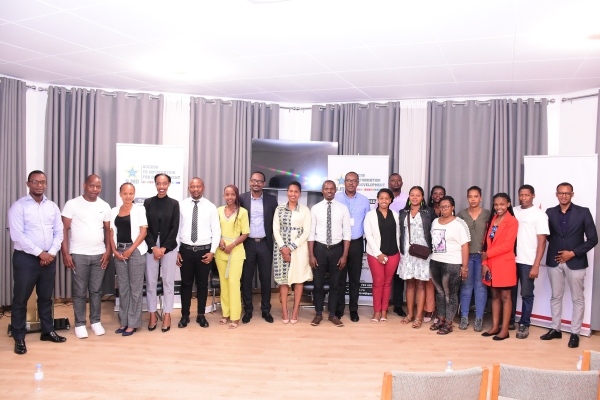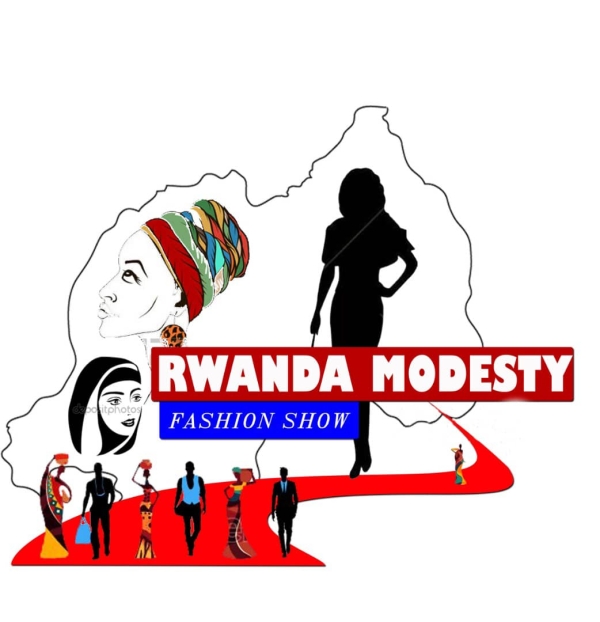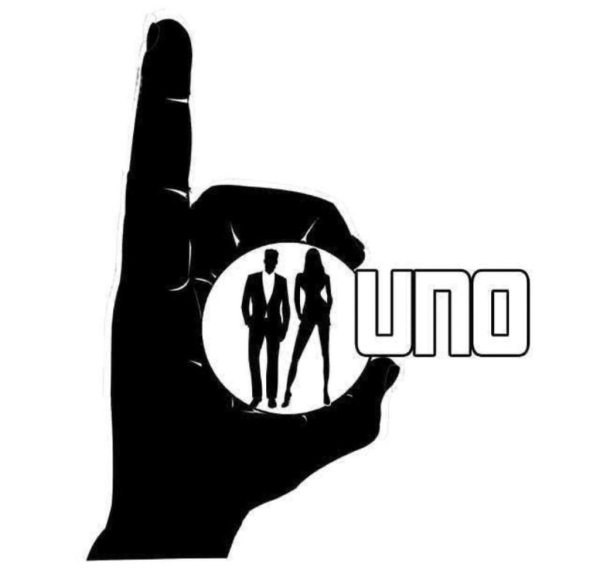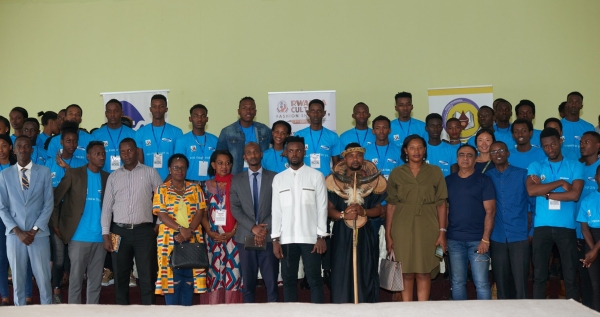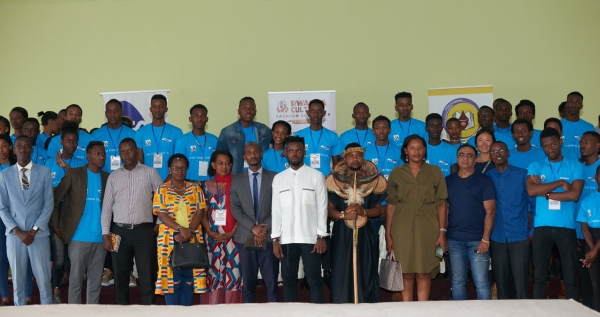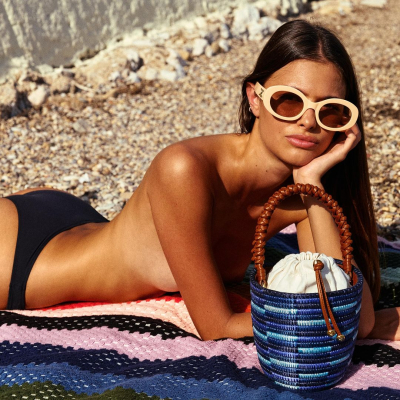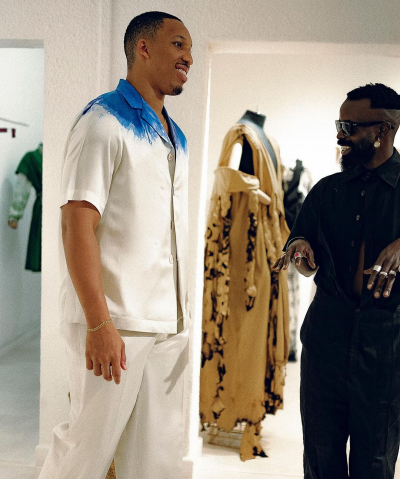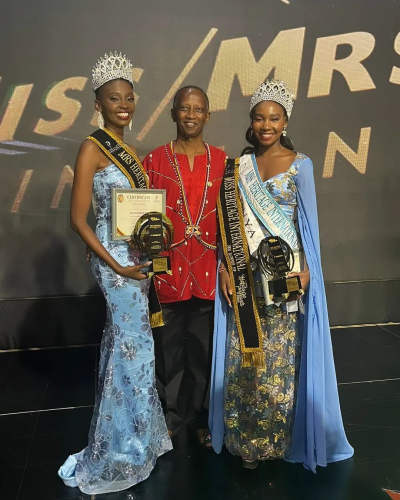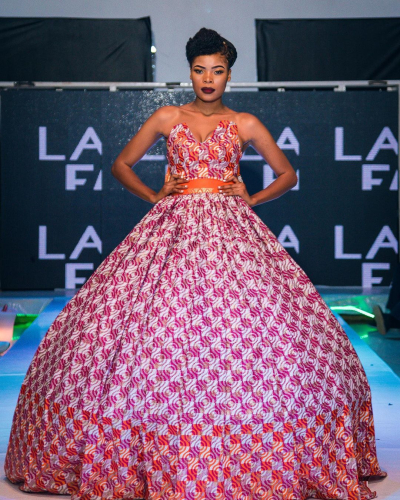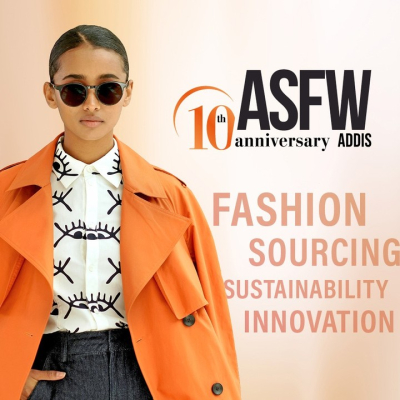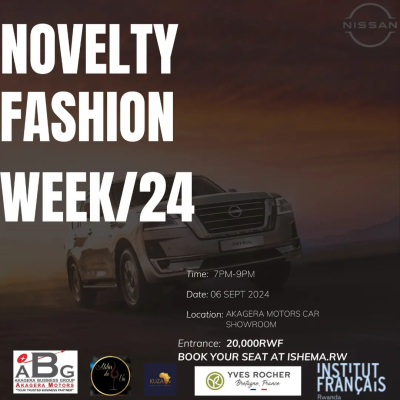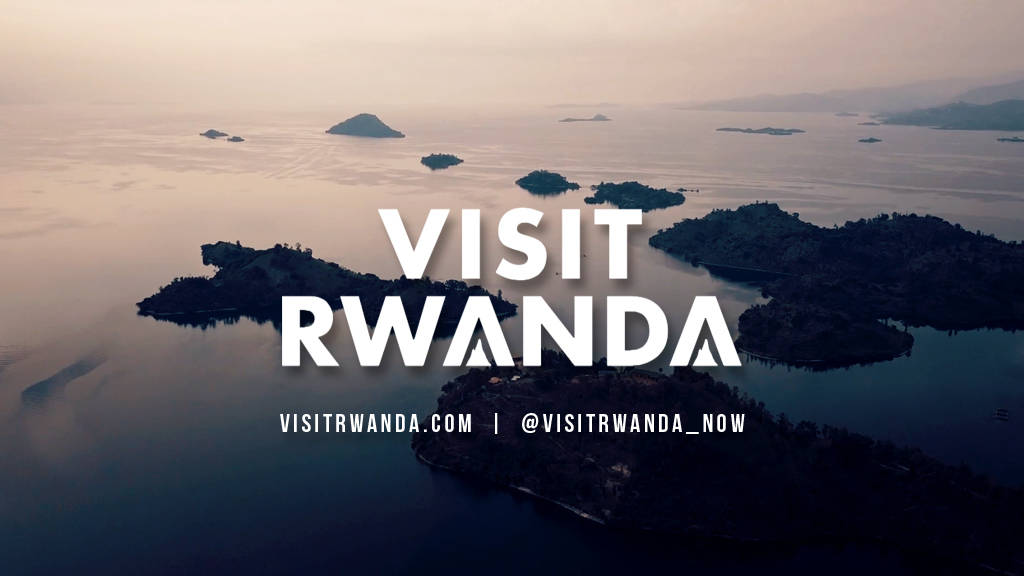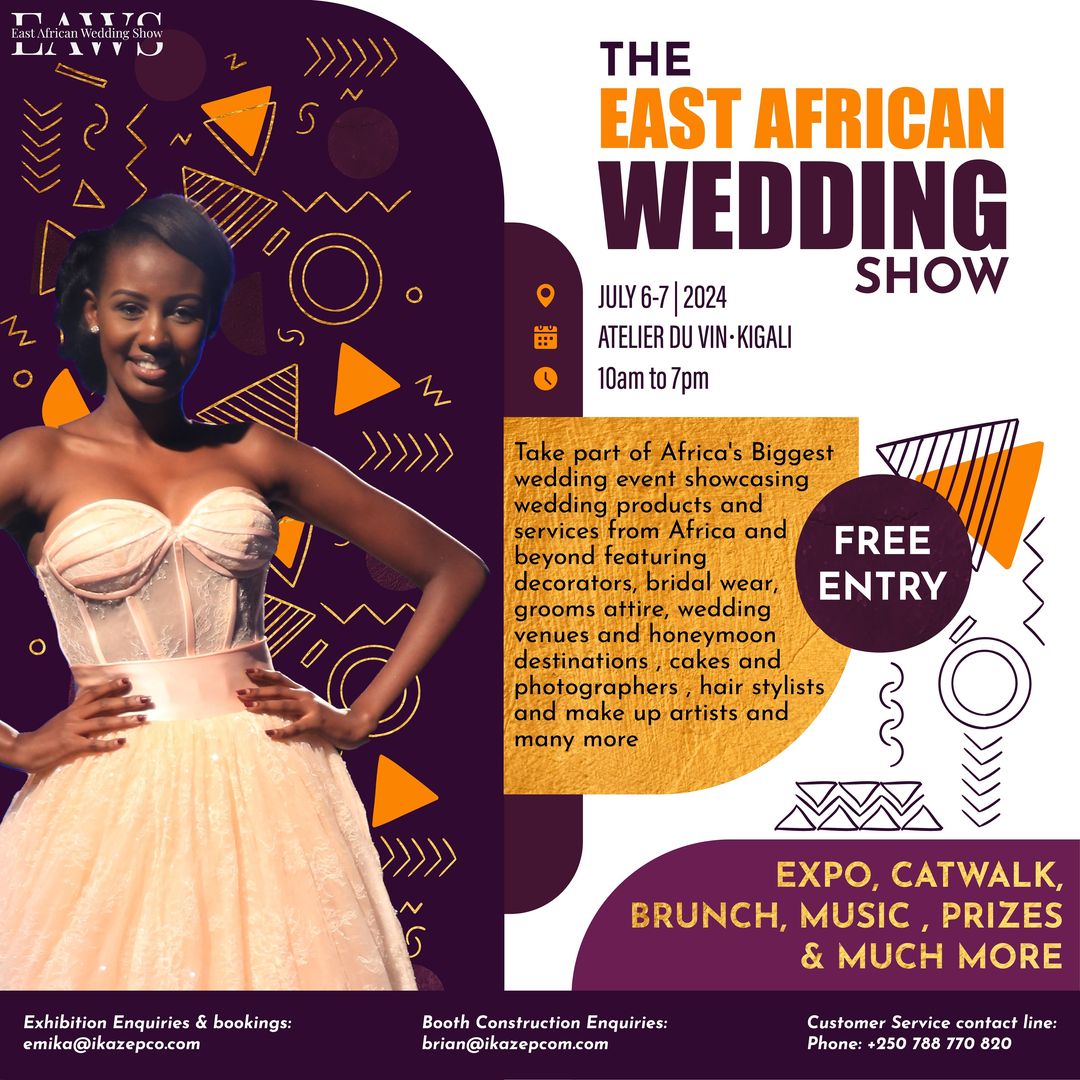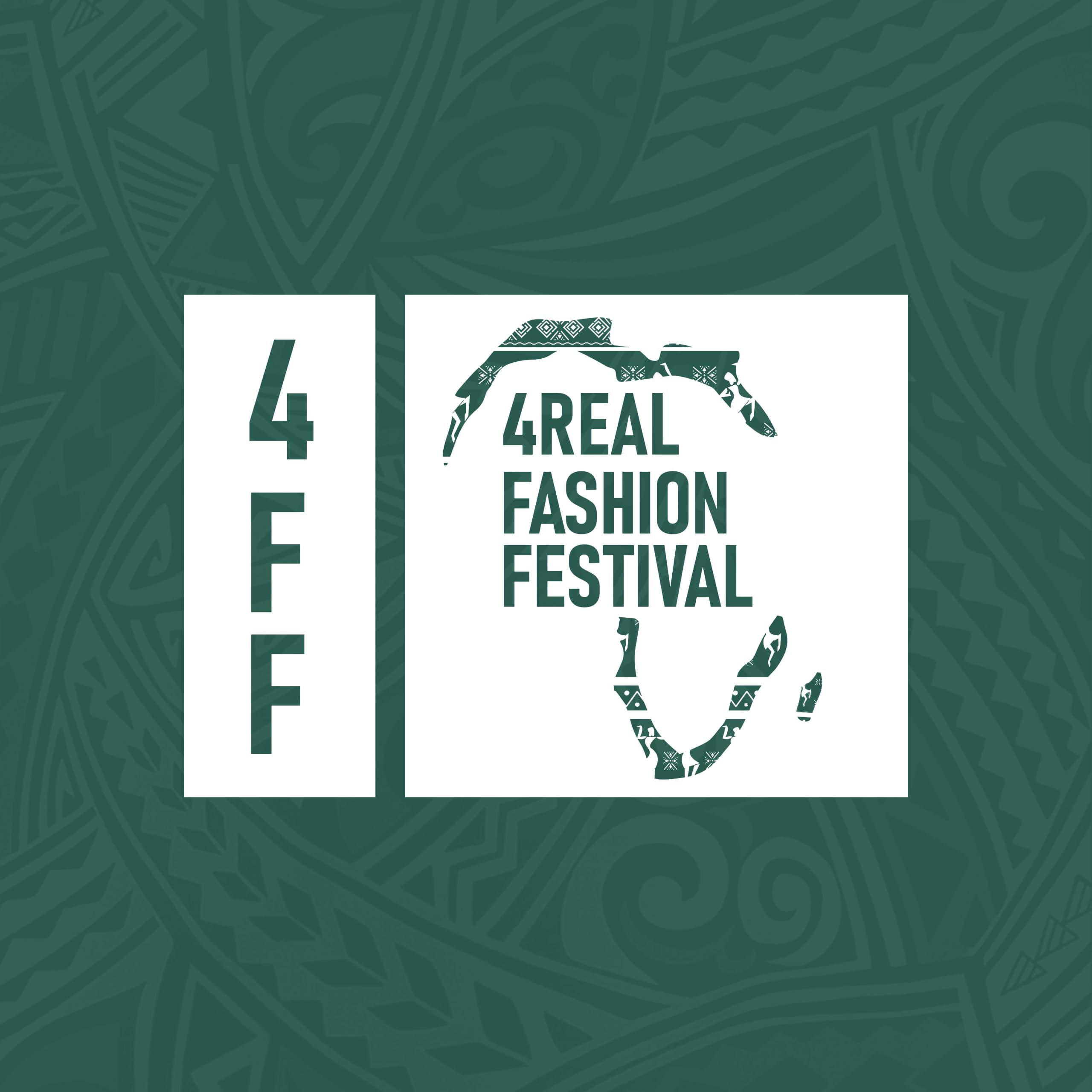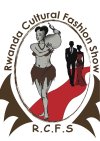
RCFS
RCFS WEBINAR: COLLABORATION IS A KEY FOR THE DEVELOPMENT OF THE FASHION INDUSTRY IN RWANDA
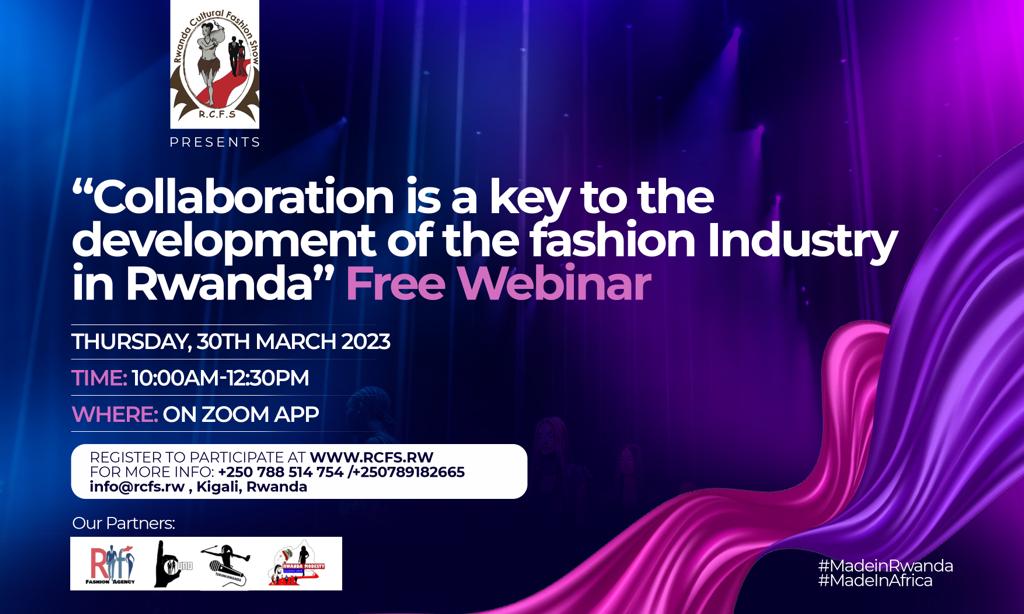
- OVERVIEW
Rwanda Cultural Fashion Show (RCFS) is a forum for local and international fashion designers to showcase their designs. Celestin Ntawirema founded RCFS in 2013. The RCFS will on March 30, hold a virtual conference during which players in the fashion industry will discuss the current state of the Rwandan fashion industry and will discuss the collaboration between fashion stakeholders.
February 28, 2023, from 10am to 1pm, RCFS hosted an open webinar on the future of the fashion industry in Rwanda. Guests’ speakers included the president of the Berwa Rwanda Federation (fashion &beauty), Ms. Dukuzumuremyi Marie Chantal, president of Rwanda Designers Association, Ms Karen Uwera, Mr Eddie Nsabimana, a journalist at The New Times, president of Rwanda Fashion Models Union (RFMU), Mr Willy Mutabazi, Franco Kabano, CEO & Founder Webest Models Management, different media journalists and fashion stakeholders in general. During the discussion, the words “uniqueness” “quality” and “Collaboration” came back many times which caught our tension to prepare another webinar about how collaboration among fashion stakeholders can be a key to the development of the Rwanda fashion industry.
The webinar will bring together different stakeholders of the fashion industry to share experiences and discuss how private and public institutions can support Rwanda’s growing fashion industry. The webinar will include discussions which will be in the form of a series of a thought-provoking panel.
Keynote speakers of the event will include renowned fashion designers, fashion promoters, modeling agencies, experts in textiles, and some government representatives from the Rwanda Development Board (RDB), Private Sector Federation (PSF), Ministry of Youth and Culture (MYCULTURE), Rwanda Cultural Heritage Academy (RCHA), Rwanda Arts Council (RAC) and the Ministry of Trade and Industry (MINICOM).
- OBJECTIVES
- To establish collaboration between fashion stakeholders in Rwanda
- To strengthen communication between institutions that support the arts and creative industry specifically the fashion sector
- To put together people in the fashion industry and promote new talents and help them to have access to the platform which can guide them toward their dreams.
- To create a space for developing and exploring creativity in designing clothes, new styles, and forms.
- Purpose
To reinforce the collaboration between fashion agencies in the Rwandan fashion industry and work together to recover from Covid-19’s impacts on this fashion industry.
- Events Details
Where: Zoom App
Date: Thursday, 30th March, 2023
Time: 10am to 12:30pm
- BACKGROUND FASHION AND MODELING AGENCIES IN RWANDA
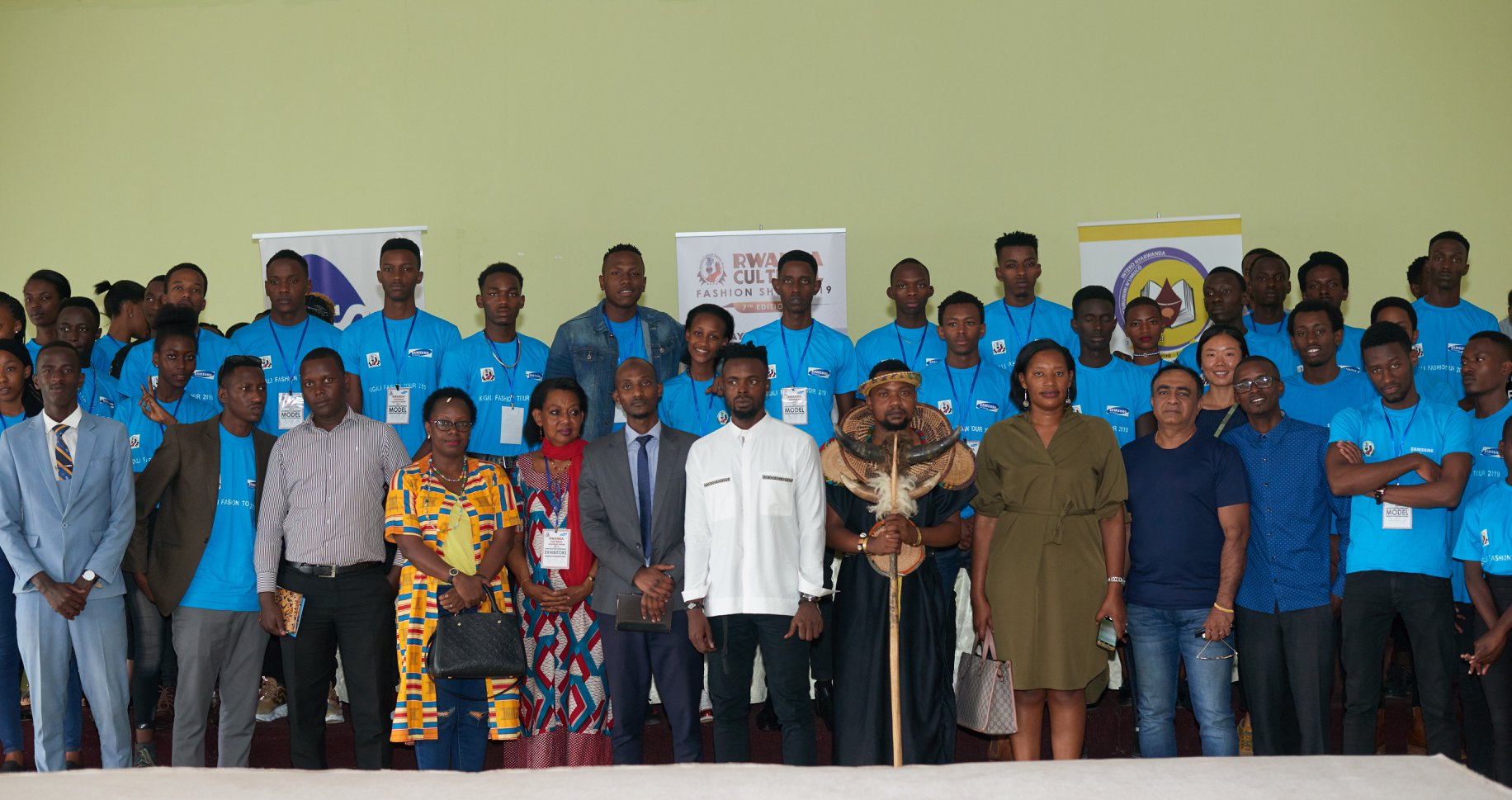 PHOTO: Models with fashion designers at the Chez Lando hotel after a 1-day conference organized by the RCFS in partnership with the Rwanda Academy of Language and Culture (RALC) and Private Sector Federation (PSF) in 2020
PHOTO: Models with fashion designers at the Chez Lando hotel after a 1-day conference organized by the RCFS in partnership with the Rwanda Academy of Language and Culture (RALC) and Private Sector Federation (PSF) in 2020
The Rwanda Fashion Industry has been through different ups and downs, but it kept developing because fashion is part of our culture and who we are. It was a long way to go, and many thanks to the fashion agencies in collaboration with public institutions who made it possible and put more effort to fashion fun and memories. Through various events like Kwita Izina Ceremony and the Visit Rwanda campaign, we have seen different superstars purchasing products from local designers that make the Rwandan flag stand in Western countries. It is fifteen years now when Rwandan entrepreneurs continue to invest in Fashion and Modeling businesses.

PHOTO: Models and fashion designers at UTEXIRWA with the RCFS team after the Kigali Fashion Tour 2020 organized by the RCFS in partnership with SAMSUNG 4G –Rwanda and UTEXIRWA LTD
Rwanda is doing its best to promote locally-made products like other African countries. The government continues to develop the business sector by encouraging entrepreneurs to promote made-in-Rwanda products in fashion, modeling, and textiles.
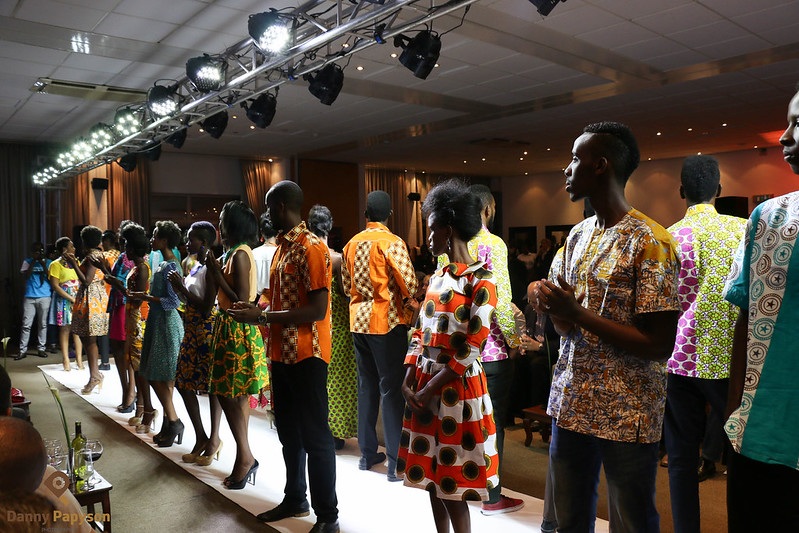
PHOTO: Models at the Hotel des Milles Collines showcasing Fathia Creations at the RCFS 2015, 3rd Edition
In 15 years ago, many things happened in the Rwanda fashion industry. For example, we have more than 20 known and established fashion designers. We also have more than ten (10) modeling agencies; more than five (5) textiles and manufacturing industries across the country. We also have about five (5) big annual fashion shows in the country.
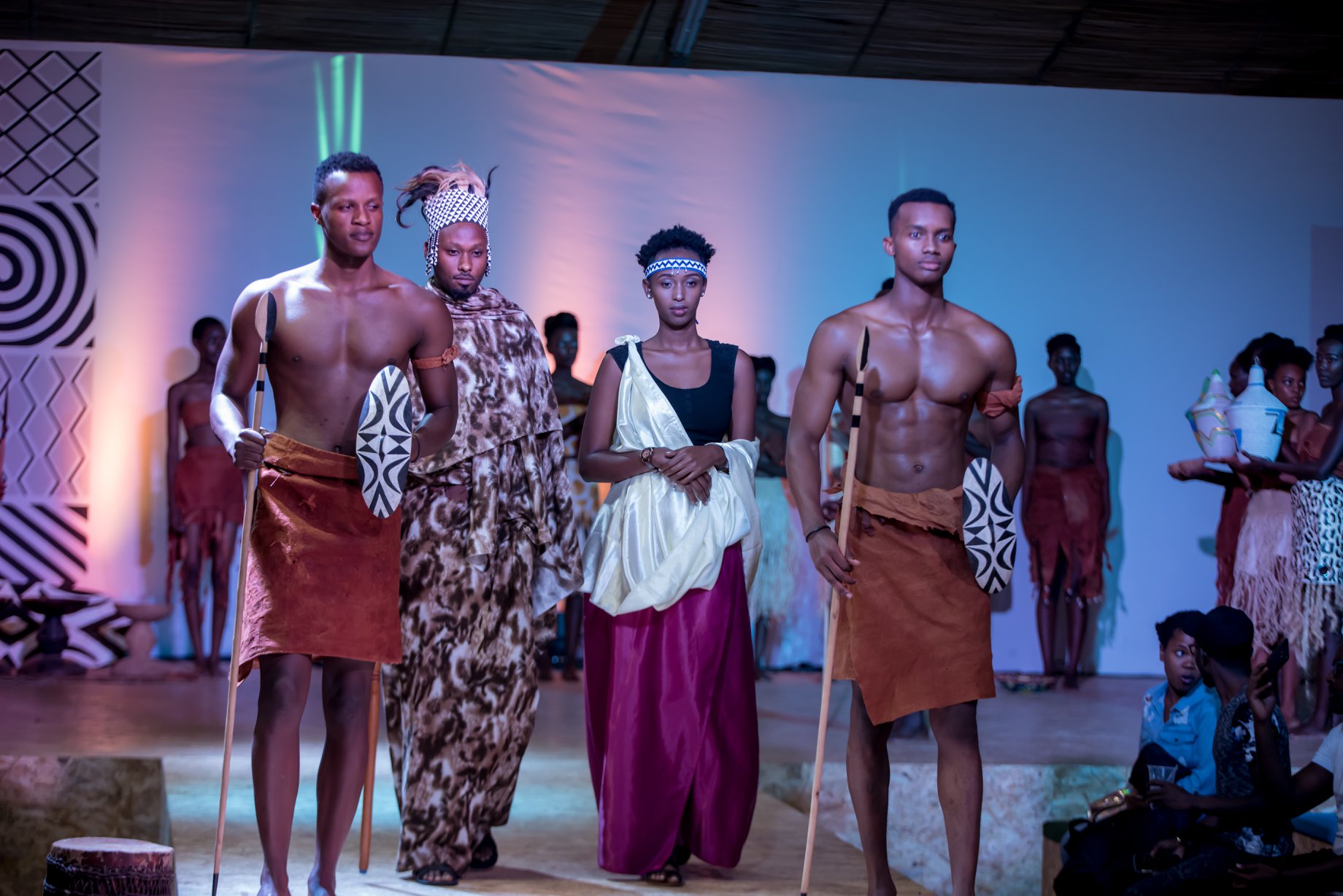
PHOTO: Models showcasing culture outfits at the RCFS 2018 at Kigali Cultural Village (KCV), 8th Edition
Even though things seem to be working with the fashion industry, models and upcoming fashion designers struggle to join the fashion scene as they continue pushing their businesses and pursuing their dreams.
One of the reasons that is blocking good performance and creating these struggles to fashion stakeholders in Rwanda, is the lack of collaboration and communication. Instead of working as a team, fashion designers and models work as serious competitors even though Rwanda’s fashion sector doesn’t have much to offer at the moment. Furthermore, the covid-19 pandemic impacted fashion entrepreneurs, both fashion designers and models because fashion events were canceled and postponed. The pandemic also affected fashion designers who used to offer advertisement jobs to the runway models.
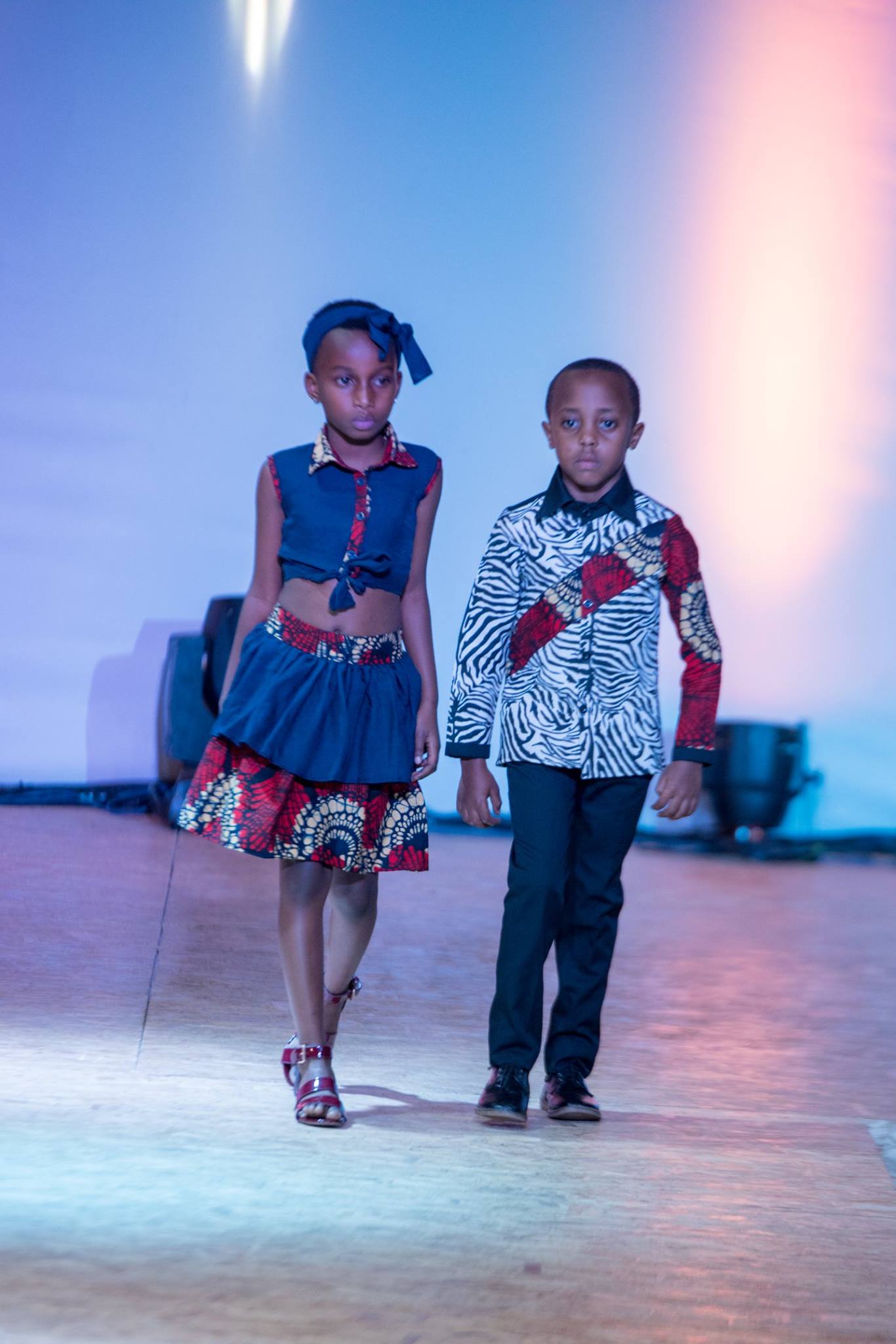
PHOTO: Kids models at the RCFS 2018, Kigali Cultural Village, 8thEdition
Conclusion
The RCFS is much more concerned about the development of the fashion industry in Rwanda and it wants to reinforce “collaboration” among fashion and modeling agencies as well as engaging government institutions to support the arts and creative industry in Rwanda. That is why the RCFS sees collaboration as the key to this development as we continue to build a stronger fashion sector. The outcomes from the described above will spotlight the key considerations, and the recommendations will be put into reality.
- OVERVIEW
Rwanda Cultural Fashion Show (RCFS) is a forum for local and international fashion designers to showcase their designs. Celestin Ntawirema founded RCFS in 2013. The RCFS will on March 30, hold a virtual conference during which players in the fashion industry will discuss the current state of the Rwandan fashion industry and will discuss the collaboration between fashion stakeholders.
February 28, 2023, from 10am to 1pm, RCFS hosted an open webinar on the future of the fashion industry in Rwanda. Guests’ speakers included the president of the Berwa Rwanda Federation (fashion &beauty), Ms. Dukuzumuremyi Marie Chantal, president of Rwanda Designers Association, Ms Karen Uwera, Mr Eddie Nsabimana, a journalist at The New Times, president of Rwanda Fashion Models Union (RFMU), Mr Willy Mutabazi, Franco Kabano, CEO & Founder Webest Models Management, different media journalists and fashion stakeholders in general. During the discussion, the words “uniqueness” “quality” and “Collaboration” came back many times which caught our tension to prepare another webinar about how collaboration among fashion stakeholders can be a key to the development of the Rwanda fashion industry.
The webinar will bring together different stakeholders of the fashion industry to share experiences and discuss how private and public institutions can support Rwanda’s growing fashion industry. The webinar will include discussions which will be in the form of a series of a thought-provoking panel.
Keynote speakers of the event will include renowned fashion designers, fashion promoters, modeling agencies, experts in textiles, and some government representatives from the Rwanda Development Board (RDB), Private Sector Federation (PSF), Ministry of Youth and Culture (MYCULTURE), Rwanda Cultural Heritage Academy (RCHA), Rwanda Arts Council (RAC) and the Ministry of Trade and Industry (MINICOM).
- OBJECTIVES
- To establish collaboration between fashion stakeholders in Rwanda
- To strengthen communication between institutions that support the arts and creative industry specifically the fashion sector
- To put together people in the fashion industry and promote new talents and help them to have access to the platform which can guide them toward their dreams.
- To create a space for developing and exploring creativity in designing clothes, new styles, and forms.
- Purpose
To reinforce the collaboration between fashion agencies in the Rwandan fashion industry and work together to recover from Covid-19’s impacts on this fashion industry.
- Events Details
Where: Zoom App
Date: Thursday, 30th March, 2023
Time: 10am to 12:30pm
- BACKGROUND FASHION AND MODELING AGENCIES IN RWANDA

The cultural fashion industry in Rwanda is on the move.
Celestin Ntawirema, a man who has been at the helm of promoting Rwandan culture through fashion is optimistic that the future of the local fashion industry is bright. Ntawirema is the chief executive officer of Rwanda Cultural Fashion Show (RCFS), established in 2013 with the aim of promoting cultural fashion.
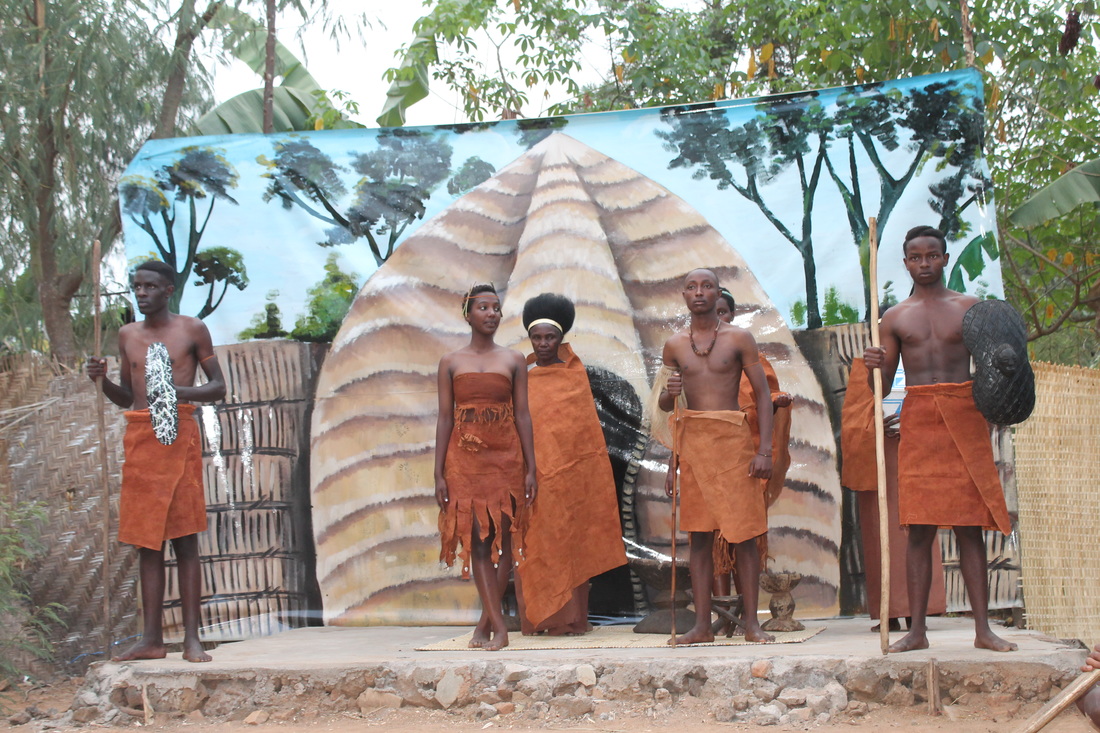
Models clad in a variety of collections depicting Rwandan culture. File.
He has worked with talented designers, both on the local and international scene to boost growth of the cultural fashion industry in Rwanda.
Ntawirema says that collaborating with designers locally and internationally has helped in sharing skills and experiences. Today, cultural material such as backcloth is being used in weddings, and local artistes like Mani Martin and Urban Boys, among others, have expressed their desire for the contemporary fashion designs. “It is a sign that there has been good reception of our cultural creations and this is all thanks to our hard work.
“We can still be stylish and modern in our own designs even when we dress up in what people call off,” says Ntawirema. Ntawirema admitted that there is an improvement in cultural fashion in the country, compared to when he had just started. “At fashion shows, looking at people who wear locally made clothes versus clothes from abroad and designers who have come on board, there has been growth and acceptance of fashion generally in the country,” he adds.
He added that his recent trips to the US made him realise the importance of learning from people, who are experienced in fashion and organising fashion shows.
He explained that through attending different fashion shows and meeting different people abroad, he has been able to learn event management skills, as well as being creative on how to push this business to the front as this will help his brand grow.
Ntawirema has taken Rwanda Cultural Fashion show to different parts of Kigali. He says his objective is to expand his brand as well as inspire new designers and models in the industry.
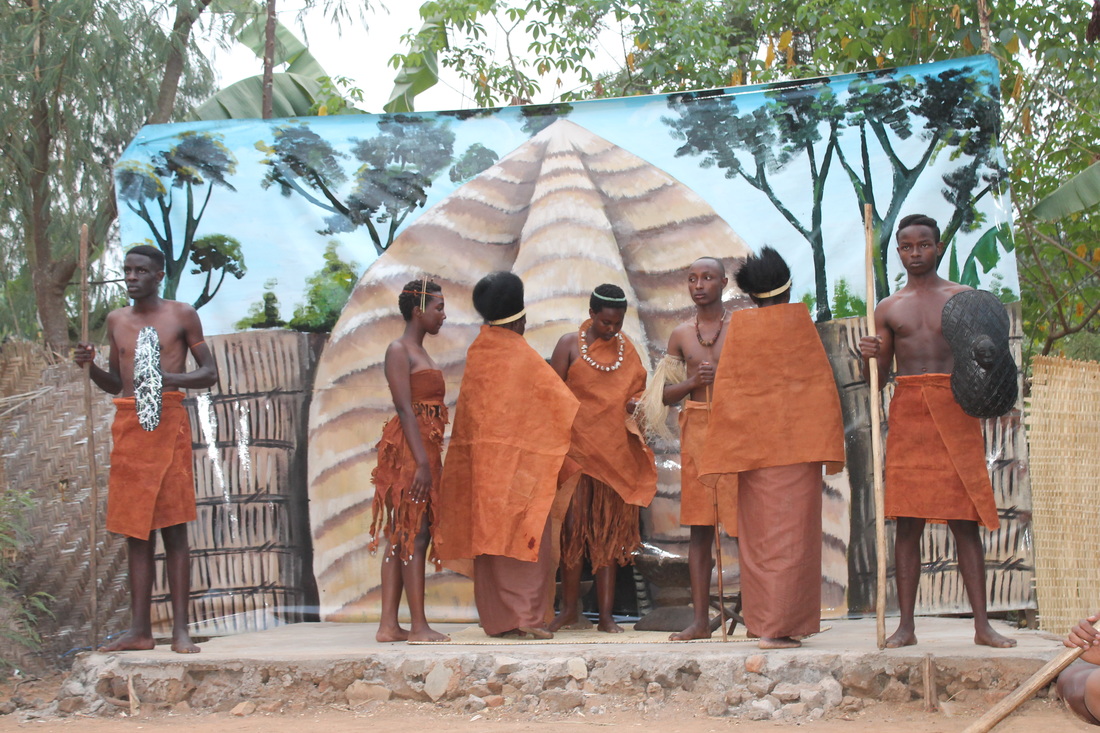
Models clad in a variety of collections depicting Rwandan culture. File
He seeks to see Rwanda’s cultural designs compete globally, although he points out the need for our own fabrics from which the country can be identified with, just as we are familiar with Ghana’s inkara and other fabrics from Italy and China. His efforts have also been boosted by other stakeholders. Rwanda Development Board (RDB) and other organisations like Red Rock actively support the annual Rwanda Cultural Fashion show.
This email address is being protected from spambots. You need JavaScript enabled to view it.
The cultural fashion industry in Rwanda is on the move.
Celestin Ntawirema, a man who has been at the helm of promoting Rwandan culture through fashion is optimistic that the future of the local fashion industry is bright. Ntawirema is the chief executive officer of Rwanda Cultural Fashion Show (RCFS), established in 2013 with the aim of promoting cultural fashion.

Models clad in a variety of collections depicting Rwandan culture. File.
He has worked with talented designers, both on the local and international scene to boost growth of the cultural fashion industry in Rwanda.
Ntawirema says that collaborating with designers locally and internationally has helped in sharing skills and experiences. Today, cultural material such as backcloth is being used in weddings, and local artistes like Mani Martin and Urban Boys, among others, have expressed their desire for the contemporary fashion designs. “It is a sign that there has been good reception of our cultural creations and this is all thanks to our hard work.
“We can still be stylish and modern in our own designs even when we dress up in what people call off,” says Ntawirema. Ntawirema admitted that there is an improvement in cultural fashion in the country, compared to when he had just started. “At fashion shows, looking at people who wear locally made clothes versus clothes from abroad and designers who have come on board, there has been growth and acceptance of fashion generally in the country,” he adds.
He added that his recent trips to the US made him realise the importance of learning from people, who are experienced in fashion and organising fashion shows.
He explained that through attending different fashion shows and meeting different people abroad, he has been able to learn event management skills, as well as being creative on how to push this business to the front as this will help his brand grow.
Ntawirema has taken Rwanda Cultural Fashion show to different parts of Kigali. He says his objective is to expand his brand as well as inspire new designers and models in the industry.

Models clad in a variety of collections depicting Rwandan culture. File
He seeks to see Rwanda’s cultural designs compete globally, although he points out the need for our own fabrics from which the country can be identified with, just as we are familiar with Ghana’s inkara and other fabrics from Italy and China. His efforts have also been boosted by other stake holders. Rwanda Development Board (RDB) and other organisations like Red Rock actively support the annual Rwanda Cultural Fashion show.
This email address is being protected from spambots. You need JavaScript enabled to view it.
The Rwanda Fashion Industry has been through different ups and downs, but it kept developing because fashion is part of our culture and who we are. It was a long way to go, and many thanks to the fashion agencies in collaboration with public institutions who made it possible and put more effort to fashion fun and memories. Through various events like Kwita Izina Ceremony and Visit Rwanda, we have seen different superstars purchasing products from local designers that make the Rwandan flag stand in Western countries. It is fifteen years now when Rwandan entrepreneurs continue to invest in Fashion and modeling businesses.

Photo: Models showcasing at the RCFS 2015, at Hotel des Milles Collines, by Fathia Creations
Rwanda is doing its best to promote locally-made products like other African countries. The government continues to develop the business sector by encouraging entrepreneurs to promote made-in-Rwanda products in fashion, modeling, and textiles. In ten years ago, many things happened in the Rwanda fashion industry. For example, we have more than 15 known and established fashion designers. We also have more than ten (10) modeling agencies; more than five (5) textiles and manufacturing industries across the country. We also have about five (5) big annual fashion shows in the country.
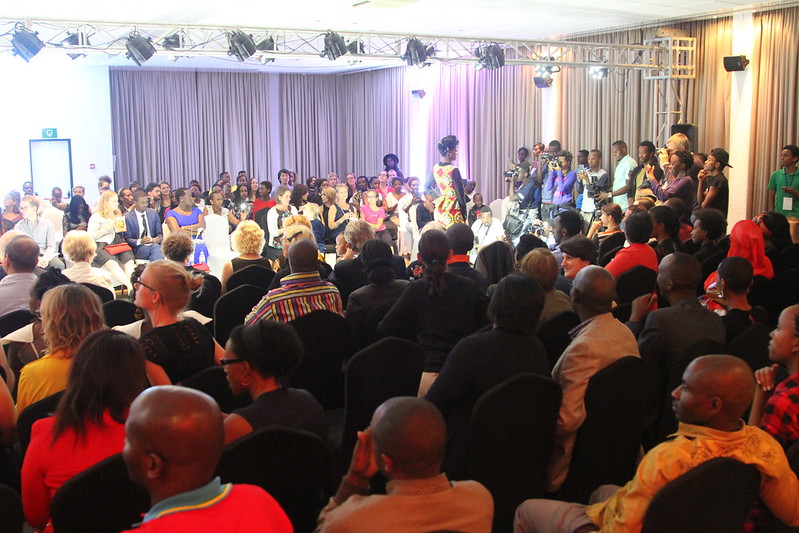
Photo: RCFS 2015, 3rd edition, at Hotel des Milles Collines
Even though things seem to be working with the fashion industry, models and upcoming fashion designers struggle to get promotions to promote their new creations and share their everyday activities, new talents, and new products. The lack of fashion writers continues to be an issue for models and fashion designers while they continue pushing their businesses and pursuing their dreams.
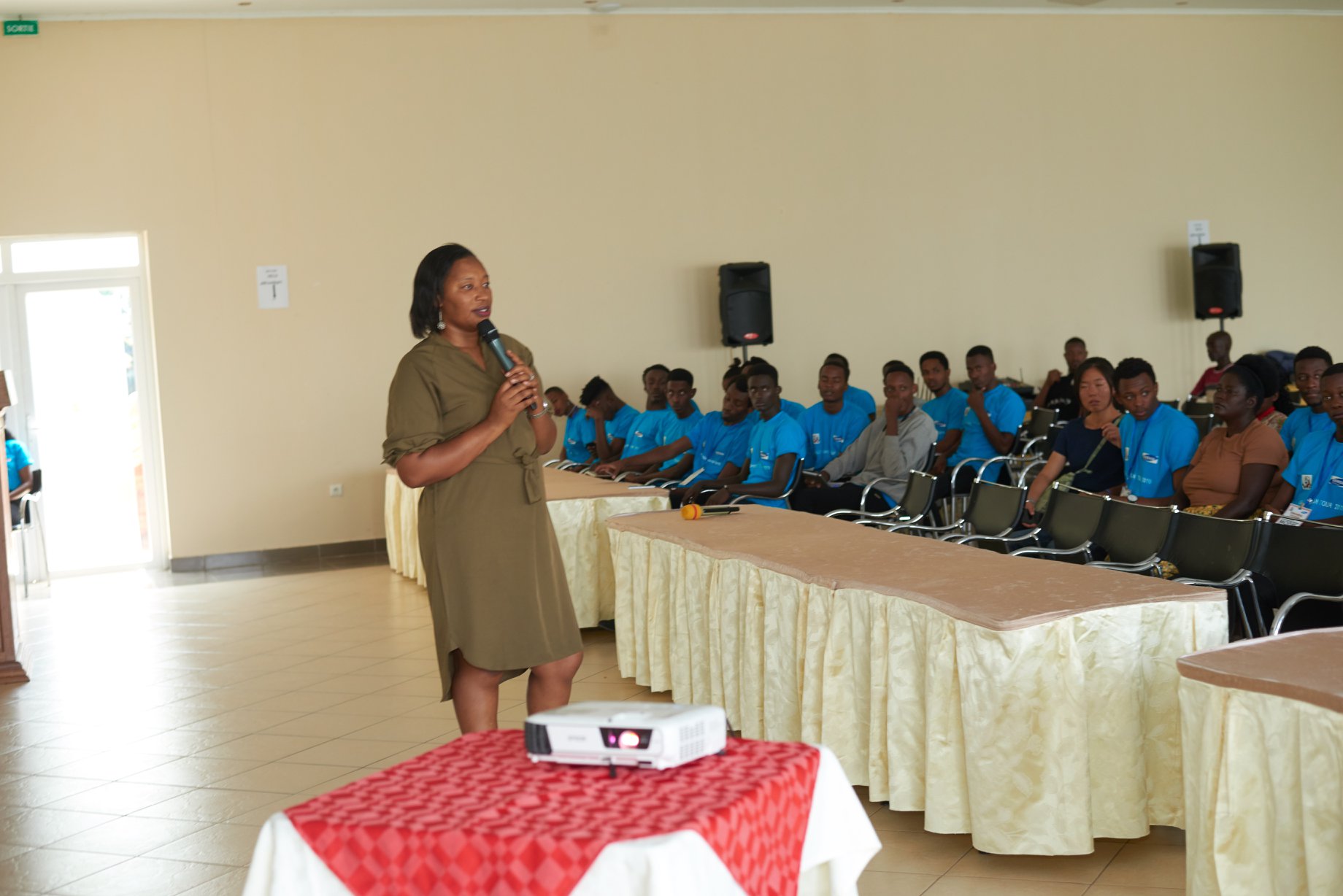
Photo 2019: Fashion designers, tailors and models during one-day training “Made In Rwanda – Made In Africa to the world” organized by the RCFS in partnership with the Rwanda Academy of Language and Culture (RALC)
Currently, RCFS has launched a partnership with four fashion and modeling agencies to help talented young and upcoming talented writers to develop and publish their stories. Together with our partners; former Rwandan journalists and the Rwanda Journalists For Sustainable Development (RJSD we come up with an offer. A free two months fashion stories writing course. Through online training, the participant will be able to learn the basic of doing; research, reporting, and writing.
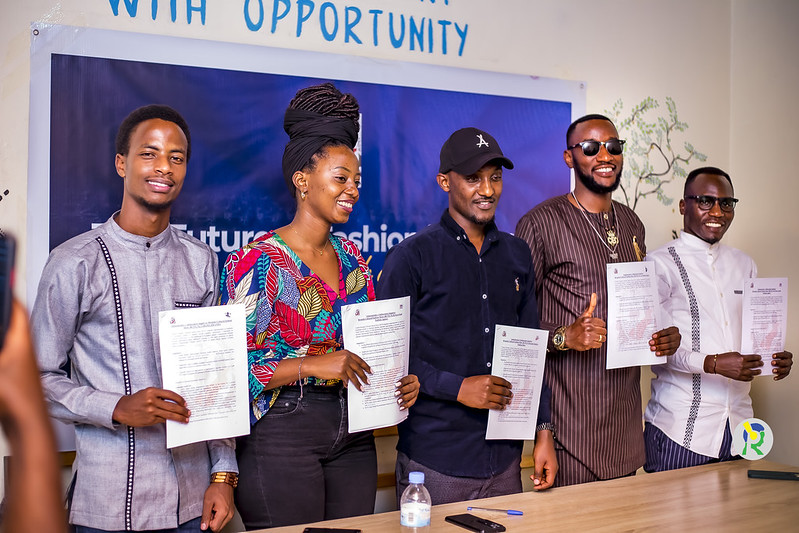
PHOTO February 2023: From left, Wilson Kenzy CEO & Founder of Tarama Rwanda Initiative, Moniah Uwimbabazi Assistant Coordinator RCFS, Ngabitsinze Abdul Wahabi the CEO & Founder of Rwanda Modesty Fashion Show, Kwizera Danny the CEO & Founder UNO Fashion Agency and last on the right Ri Koni Yocan CEO & Founder RIFI Fashion Agency during the ceremony of signing partnerships agreements.
The free writing course aims to equip participants with the knowledge, skills, and techniques to write captivating and insightful stories that inform, educate and inspire readers about the world of fashion. After this piloting course, we hope to organize different writing courses on fashion, modeling, and textile to equip young talents with enough skills they need to boost their performance in the future.

Photo: Kigali Fashion Tour by RCFS and was a part of the 2019 event series. This was the afternoon tour at C & D Garments factory - Masoro industrials area in Kigali
The first top 3 stories will receive awards from the RCFS and its partners. Others stories will be published on the RCFS website as well as our partner's websites. As the course program will last two months, below are the details. Moreover, by the end of the online course, RCFS will organize a physical meeting day where each trainee will present her/his story in front of the trainers for them to choose the top three.
OBJECTIVES
-
Developing skills in writing compelling and engaging fashion stories that capture readers’ attention and interest
-
Understanding the principles of storytelling and how to apply them to the fashion industry, including creating characters, plots, conflicts, and resolutions.
-
Learning how to research and gather information on fashion trends, designers,
brands, and history and incorporating that knowledge into fashion stories
-
Developing an understanding of different types of fashion writing, such as news, features, reviews, and profiles, and learning how to write in each of these styles.
Are you an expert speaker in the fashion and textiles industry? Are you a professional journalist specializing in fashion and textiles? You can be part of this. For more information about registration and partnerships send us an email at This email address is being protected from spambots. You need JavaScript enabled to view it. or call +250 788 514 754, WhatsApp: +250789182665
February 28, 2023, from 10am to 1pm, The Rwanda Cultural Fashion Show (RCFS) hosted an open webinar on the future of the fashion industry in Rwanda. RCFS organized this webinar to reinforce the collaboration between fashion agencies in Rwanda and strengthen how they can work together to recover from Covid-19’s impacts on the fashion industry. This virtual conference had participants such as fashion designers, models, journalists, fashion promoters, and event planners gathered to exchange ideas about the development of fashion in Rwanda.
Keynote speakers were:
- Mrs. Dukuzumuremyi Marie Chantal, Legal Representative of Berwa Rwanda Federation (Fashion &Beauty)
- Mrs. Karen Uwera, President of the Rwanda Designers Association and CEO & founder of Karssh Collection
- CEO & Founder of Webest Models Management, Mr. Kabano Franco
- Mr. Eddie Nsabimana, a journalist at The New Times
The discussion moderators were Mr. Celestin Ntawirema, the RCFS Founder, and his assistant Monique Uwimbabazi. It was open for everyone to participate and share ideas. Fashion lovers were curious to participate where two days before the webinar, some were commenting that it is time for fashion stakeholders to be honest and speak the truth about the issues in the fashion industry so that they can be tackled from their root causes.
The main topics covered throughout the discussion were:
- The role of media and journalism in the development of fashion in Rwanda
- How to reach the available opportunities for young and upcoming fashion designers
- The improvement of modeling at the international level
- How Berwa Rwanda Federation (fashion and beauty) can bring together all people in the fashion industry
- How to recover from Covid-19’s impacts
After the opening remark and showing the agenda, Mr. Celestin welcomed Mr. Eddie Nsabimana to talk about the role of media and journalism in the development journey of fashion in Rwanda. Mr. Eddie said that the media was there from the beginning of the fashion journey, and the media is playing a big role in promoting the fashion industry to the international audience. He added that fashion designers and models should put more effort to work closely with the media because it is always there to help them in one way or another. However, Mr. Eddie mentioned that the lack of creativity and uniqueness in fashion is affecting the development of the fashion industry. He encouraged people in the fashion industry to collaborate and work as a team to overcome challenges in their sector.
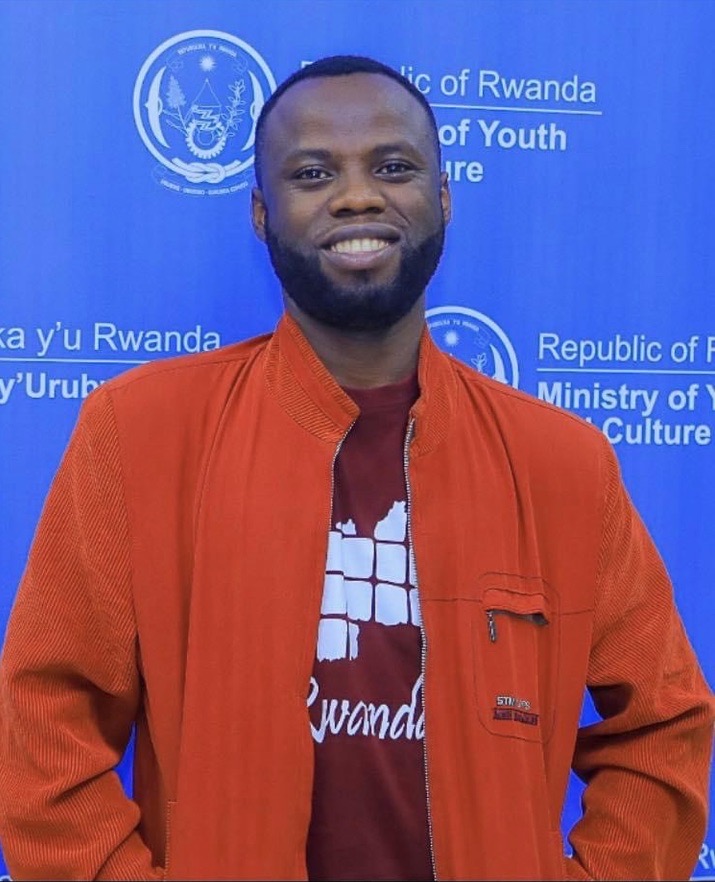
Mr. Eddie Nsabimana, a journalist at The New Times
The floor was handed to Mrs. Karen Uwera to talk about the opportunities for fashion designers in Rwanda and how there are shared with all the stakeholders. She said that opportunities are there, but it is hard to find where. To mean that people should work together to facilitate the value chains in the fashion market. Mrs. Karen added that it is okay for Private Sector Federation (PSF), Rwanda Development Board (RDB), and Rwanda Heritage Academy (RHA) to have art and creative departments that support local fashion designers and models. The important thing is how the beneficiaries will collaborate to benefit from these institutions. She was also more concerned about how it is still an issue to find professional fashion photographers. There is a gap in the professional fashion photographers that needs to be addressed as soon as possible because it is hard for a designer to show his/her collection without having a professional photographer to do so as in the saying “No photo, nothing happened.”
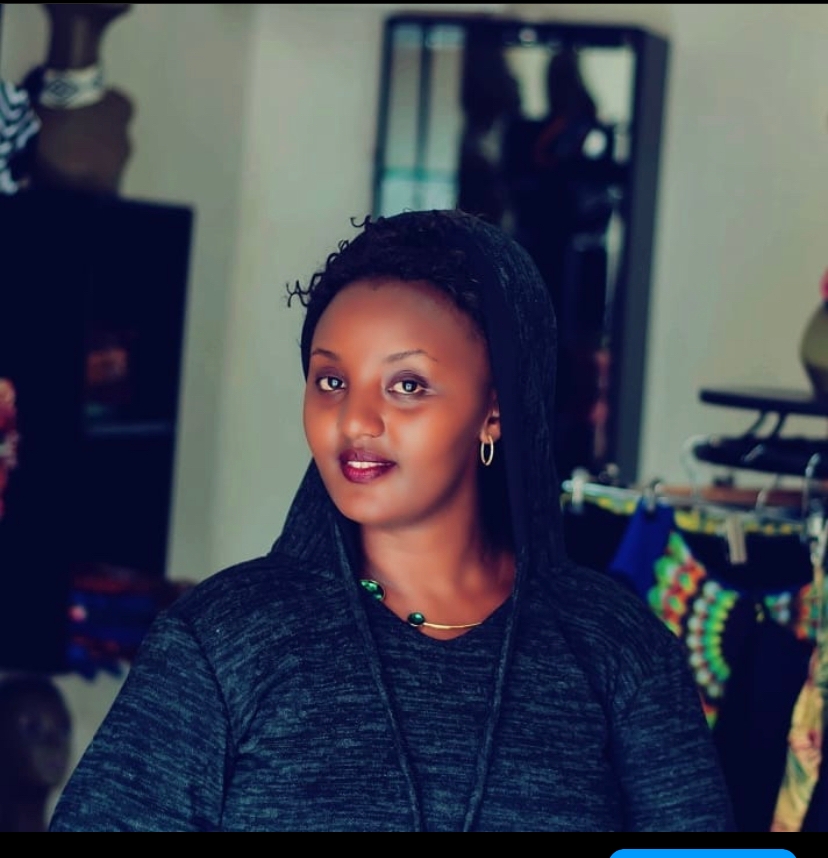
Mrs. Karen Uwera, President of the Rwanda Designers Association and CEO & founder of Karssh Collection
During the discussion, Mr. Kabano Franco was also present and was introduced by the moderator Mr. Celestin as one of the people in Rwanda's fashion industry who is helping Rwandan models at the international level, especially in Europe. He is also the founder of the Rwanda Fashion Models Union (RFMU) which aims to introduce modeling to government institutions. On his floor, Mr. Franco said that modeling is a career that Rwanda models should see as a job, not as a hobby, but they have to be careful to decide if they want to be and live as a model because it takes much energy and requires them to be patient until they become successful. He also advises Rwandan models to be mindful when deciding to join a particular modeling agency.
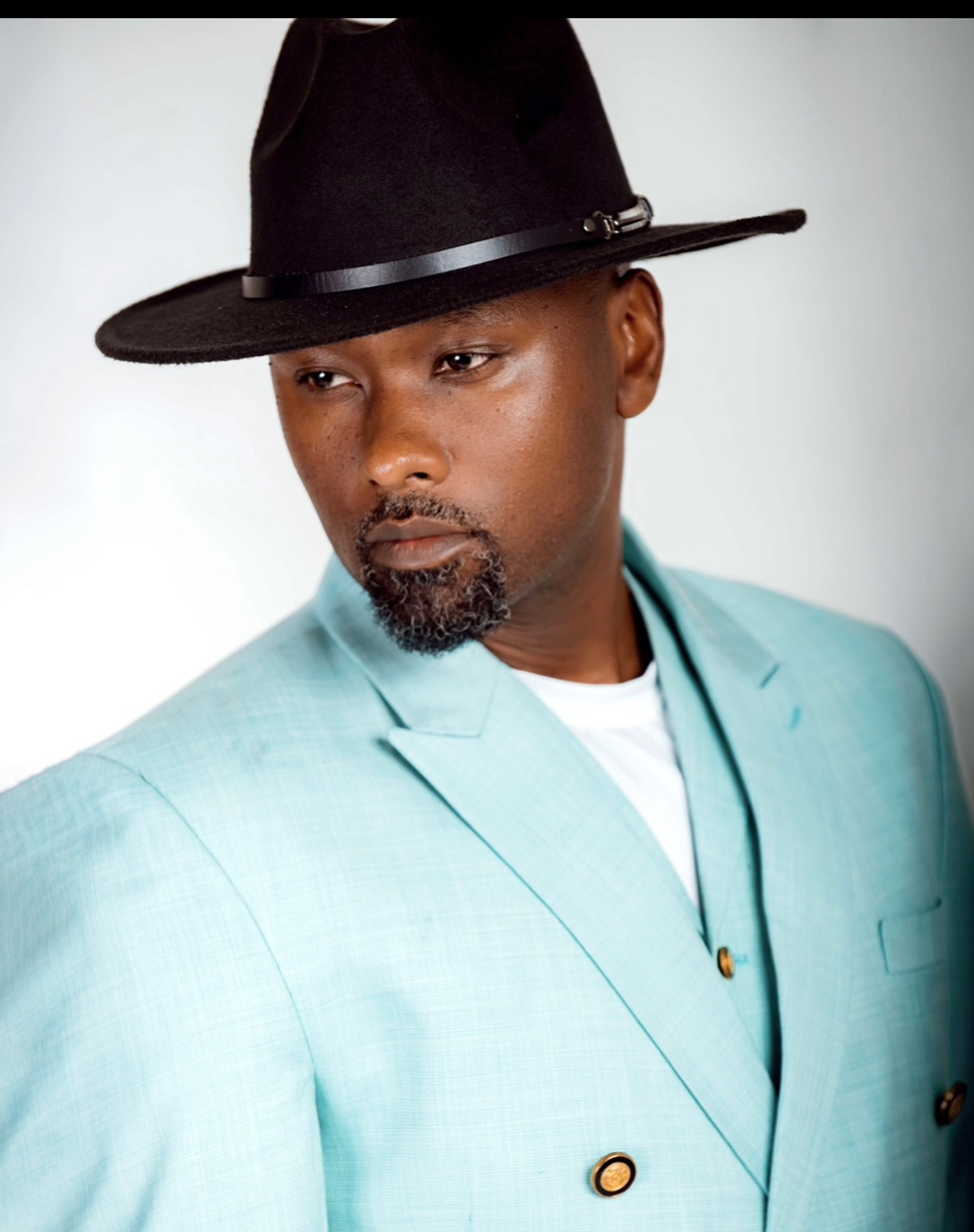
CEO & Founder of Webest Models Management, Mr. Kabano Franco
During further discussion, the Legal Representative of Berwa Rwanda Federation (fashion & beauty), Mrs. Marie Chantal Dukuzumuremyi talked about the purpose of the organization, which is to bring together fashion designers, make-up artists, and all people who are in the fashion and beauty sector. She added that Berwa Rwanda Federation is the umbrella for fashion designers in Rwanda. However, the organization's development is not certain because people in fashion are not collaborating. Mrs. Marie Chantal acknowledged that the government needs to help fashion stakeholders to establish a training center where skilled people in fashion will meet to build a strong industry that will involve everyone at his/her level.
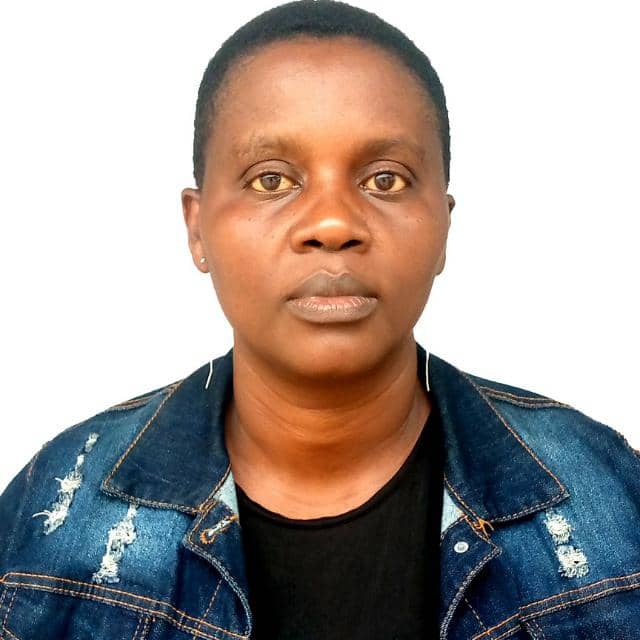
Mrs. Dukuzumuremyi Marie Chantal, Legal Representative of Berwa Rwanda Federation (Fashion &Beauty)
After the keynote speakers, Mr. Celestin opened the discussion to all participants so they can comment, share ideas, or ask questions. Mr. Mutabazi Willy, the Legal Representative of the RFMU expressed his views on what the organization is doing for local models to be recognized as well as having professional models to represent Rwanda on the international scene. He added that models still missing a collaborative spirit among them, and the organization will continue to bring models together and create jobs for the models.
The discussion took longer than expected due to the many questions asked. The words “uniqueness” “quality” and “Collaboration” came back many times during the discussion to highlight that fashion designers need to show the uniqueness and quality of their work to become sustainable and successful. And for the fashion industry to excel, all people involved need to collaborate and work as partners, not as competitors.
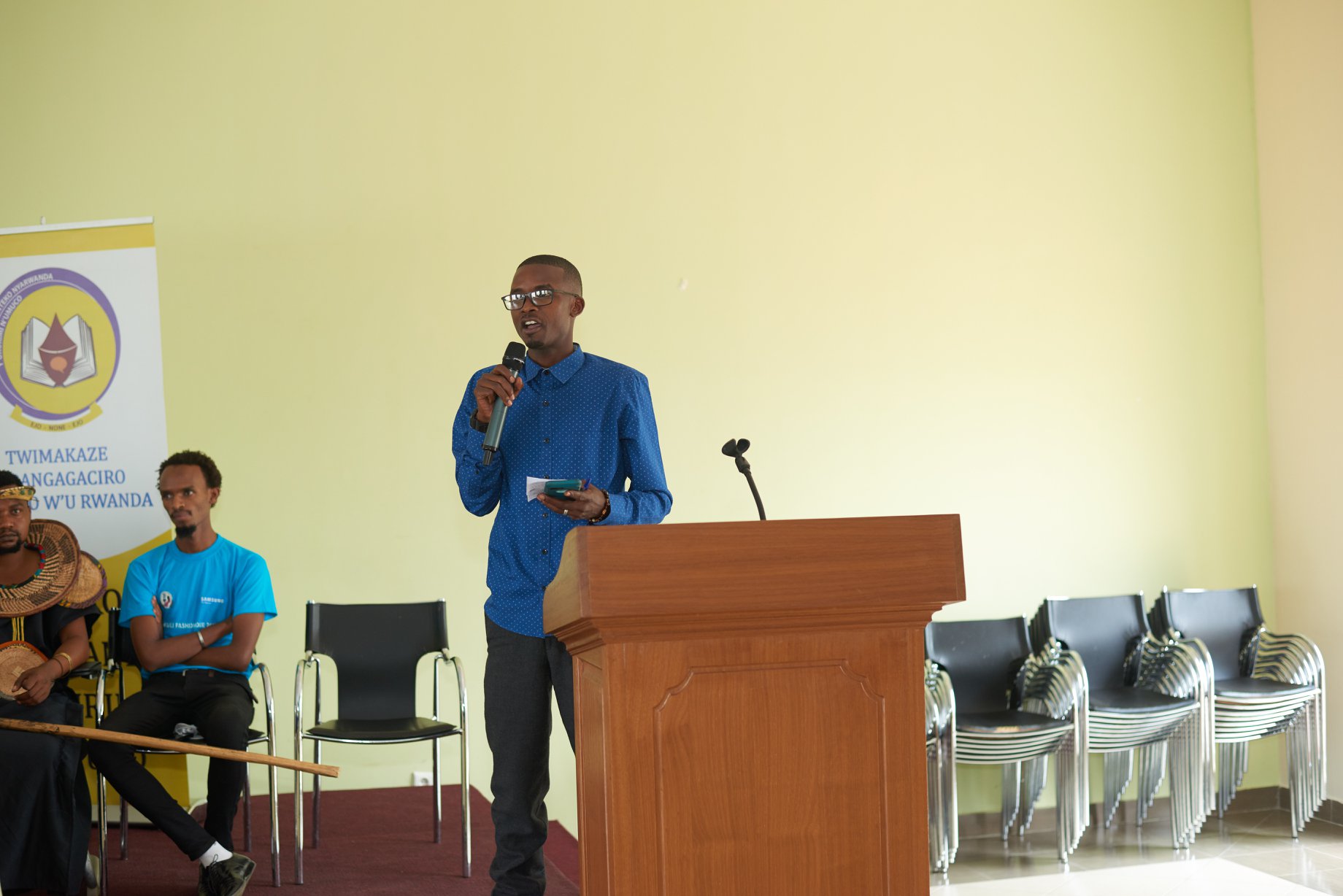
Mr. Celestin Ntawirema, the founder of the RCFS in 2019, during the discussions about the development of the fashion industry in Rwanda.
“Uniqueness” and “Quality” were also other topics that raised attention when Mrs. Uwera said that made in Rwanda are not Kitenge fabrics only. Fashion designers must be more creative to create something unique to represent them and their brands.
“Don’t take a made-in-China shirt to add a bit of Kitenge fabric or Umugongo and say you are doing made-in-Rwanda or you call yourself a fashion designer?" said Uwera. Some participants asked her what she thinks about the high prices of made in Rwanda made clothes, and she answered that some people continue to complain about the prices of different fashion shops in Kigali, but some don't even think about what made the clothes they intend to buy and where the fabric was imported from.
Other participants included; Sammy Kwizera, an entertainment journalist on Flash TV, who is also the former journalist of Fashion focus, the first fashion TV show established in Rwanda. There were also, the CEO & Founder of Tarama Rwanda Initiative, Mr. Kageruka Wilson, CEO & Founder of Rwanda Modesty Fashion Show, Mr. Ngabitsinze Adbul Wahabi, CEO & Founder of UNO Fashion agency, Augustin Hakizimana artist painter and fashion designer who is currently based in Malawi, CEO & Founder O’poma Designs, Fashion designer Elise Furaha, model Ellesa Morgan and many more.
As a closing remark, the RCFS representative Monique Uwimbabazi said that these discussions are the continuing point to put together people in the fashion industry, and it will help to promote new talents and allow them to have access to the platform which can guide them toward their dreams. Ms. Monique thanked all the keynote speakers, participants, and Mr. Celestin for successfully moderating the discussion.
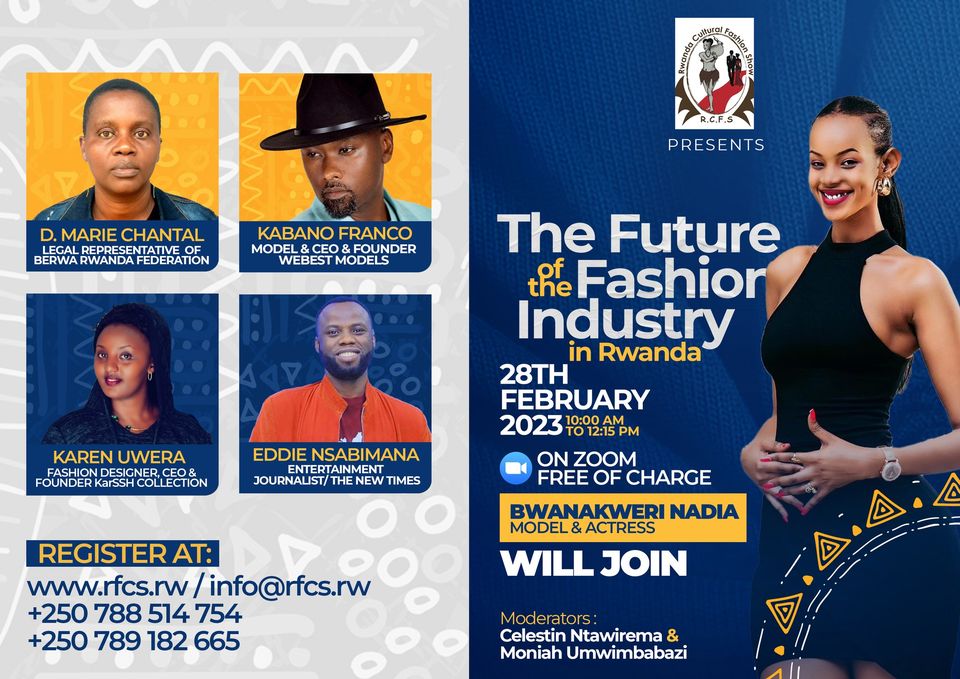
Watch the discussion here
By Florence Niyigena
Content Creator and Editor | Rwanda Cultural Fashion Show
February 28, 2023, from 10am to 1pm, The Rwanda Cultural Fashion Show (RCFS) hosted an open webinar on the future of the fashion industry in Rwanda. RCFS organized this webinar to reinforce the collaboration between fashion agencies in Rwanda and strengthen how they can work together to recover from Covid-19’s impacts on the fashion industry. This virtual conference had participants such as fashion designers, models, journalists, fashion promoters, and event planners gathered to exchange ideas about the development of fashion in Rwanda.
Keynote speakers were:
- Mrs. Dukuzumuremyi Marie Chantal, Legal Representative of Berwa Rwanda Federation (Fashion &Beauty)
- Mrs. Karen Uwera, President of the Rwanda Designers Association and CEO & founder of Karssh Collection
- CEO & Founder of Webest Models Management, Mr. Kabano Franco
- Mr. Eddie Nsabimana, a journalist at The New Times
The discussion moderators were Mr. Celestin Ntawirema, the RCFS Founder, and his assistant Monique Uwimbabazi. It was open for everyone to participate and share ideas. Fashion lovers were curious to participate where two days before the webinar, some were commenting that it is time for fashion stakeholders to be honest and speak the truth about the issues in the fashion industry so that they can be tackled from their root causes.
The main topics covered throughout the discussion were:
- The role of media and journalism in the development of fashion in Rwanda
- How to reach the available opportunities for young and upcoming fashion designers
- The improvement of modeling at the international level
- How Berwa Rwanda Federation (fashion and beauty) can bring together all people in the fashion industry
- How to recover from Covid-19’s impacts
After the opening remark and showing the agenda, Mr. Celestin welcomed Mr. Eddie Nsabimana to talk about the role of media and journalism in the development journey of fashion in Rwanda. Mr. Eddie said that the media was there from the beginning of the fashion journey, and the media is playing a big role in promoting the fashion industry to the international audience. He added that fashion designers and models should put more effort to work closely with the media because it is always there to help them in one way or another. However, Mr. Eddie mentioned that the lack of creativity and uniqueness in fashion is affecting the development of the fashion industry. He encouraged people in the fashion industry to collaborate and work as a team to overcome challenges in their sector.

Mr. Eddie Nsabimana, a journalist at The New Times
The floor was handed to Mrs. Karen Uwera to talk about the opportunities for fashion designers in Rwanda and how there are shared with all the stakeholders. She said that opportunities are there, but it is hard to find where. To mean that people should work together to facilitate the value chains in the fashion market. Mrs. Karen added that it is okay for Private Sector Federation (PSF), Rwanda Development Board (RDB), and Rwanda Heritage Academy (RHA) to have art and creative departments that support local fashion designers and models. The important thing is how the beneficiaries will collaborate to benefit from these institutions. She was also more concerned about how it is still an issue to find professional fashion photographers. There is a gap in the professional fashion photographers that needs to be addressed as soon as possible because it is hard for a designer to show his/her collection without having a professional photographer to do so as in the saying “No photo, nothing happened.”

Mrs. Karen Uwera, President of the Rwanda Designers Association and CEO & founder of Karssh Collection
During the discussion, Mr. Kabano Franco was also present and was introduced by the moderator Mr. Celestin as one of the people in Rwanda's fashion industry who is helping Rwandan models at the international level, especially in Europe. He is also the founder of the Rwanda Fashion Models Union (RFMU) which aims to introduce modeling to government institutions. On his floor, Mr. Franco said that modeling is a career that Rwanda models should see as a job, not as a hobby, but they have to be careful to decide if they want to be and live as a model because it takes much energy and requires them to be patient until they become successful. He also advises Rwandan models to be mindful when deciding to join a particular modeling agency.

CEO & Founder of Webest Models Management, Mr. Kabano Franco
During further discussion, the Legal Representative of Berwa Rwanda Federation (fashion & beauty), Mrs. Marie Chantal Dukuzumuremyi talked about the purpose of the organization, which is to bring together fashion designers, make-up artists, and all people who are in the fashion and beauty sector. She added that Berwa Rwanda Federation is the umbrella for fashion designers in Rwanda. However, the organization's development is not certain because people in fashion are not collaborating. Mrs. Marie Chantal acknowledged that the government needs to help fashion stakeholders to establish a training center where skilled people in fashion will meet to build a strong industry that will involve everyone at his/her level.

Mrs. Dukuzumuremyi Marie Chantal, Legal Representative of Berwa Rwanda Federation (Fashion &Beauty)
After the keynote speakers, Mr. Celestin opened the discussion to all participants so they can comment, share ideas, or ask questions. Mr. Mutabazi Willy, the Legal Representative of the RFMU expressed his views on what the organization is doing for local models to be recognized as well as having professional models to represent Rwanda on the international scene. He added that models still missing a collaborative spirit among them, and the organization will continue to bring models together and create jobs for the models.
The discussion took longer than expected due to the many questions asked. The words “uniqueness” “quality” and “Collaboration” came back many times during the discussion to highlight that fashion designers need to show the uniqueness and quality of their work to become sustainable and successful. And for the fashion industry to excel, all people involved need to collaborate and work as partners, not as competitors.

Mr. Celestin Ntawirema, the founder of the RCFS in 2019, during the discussions about the development of the fashion industry in Rwanda.
“Uniqueness” and “Quality” were also other topics that raised attention when Mrs. Uwera said that made in Rwanda are not Kitenge fabrics only. Fashion designers must be more creative to create something unique to represent them and their brands.
“Don’t take a made-in-China shirt to add a bit of Kitenge fabric or Umugongo and say you are doing made-in-Rwanda or you call yourself a fashion designer?" said Uwera. Some participants asked her what she thinks about the high prices of made in Rwanda made clothes, and she answered that some people continue to complain about the prices of different fashion shops in Kigali, but some don't even think about what made the clothes they intend to buy and where the fabric was imported from.
Other participants included; Sammy Kwizera, an entertainment journalist on Flash TV, who is also the former journalist of Fashion focus, the first fashion TV show established in Rwanda. There were also, the CEO & Founder of Tarama Rwanda Initiative, Mr. Kageruka Wilson, CEO & Founder of Rwanda Modesty Fashion Show, Mr. Ngabitsinze Adbul Wahabi, CEO & Founder of UNO Fashion agency, Augustin Hakizimana artist painter and fashion designer who is currently based in Malawi, CEO & Founder O’poma Designs, Fashion designer Elise Furaha, model Ellesa Morgan and many more.
As a closing remark, the RCFS representative Monique Uwimbabazi said that these discussions are the continuing point to put together people in the fashion industry, and it will help to promote new talents and allow them to have access to the platform which can guide them toward their dreams. Ms. Monique thanked all the keynote speakers, participants, and Mr. Celestin for successfully moderating the discussion.

Watch the discussion here
By Florence Niyigena
Content Creator and Editor | Rwanda Cultural Fashion Show
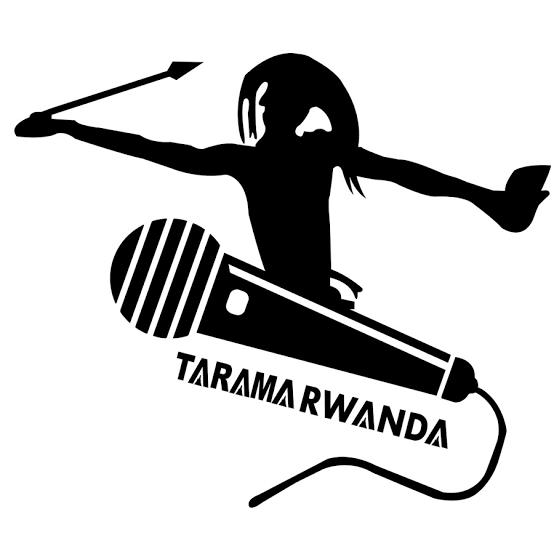
ORIGIN OF THE WORD "TARAMA"
In Rwandan tradition, the term ''Tarama" comes from verb "Gutarama" refers to the act of staying up late for community reunions during festivals. In the past, during celebrations like Umuganura (Rwandan Thanksgiving day), Rwandans would come together to sing and dance. Men would recite their legendary achievements, known as "Imyato," while women cheered them on. With so many events taking place, the festival became known as "INKERA YABEZA" or later "Kurara Inkera," which in modern times is commonly referred to as "Gutarama," indicating a night-long community gathering for a festival.
EXECUTIVE SUMMARY
The Rwandan sector of entertainment has experienced enormous adverse changes throughout the recent years, especially during the COVID-19 lockdown. Nonetheless, it is, currently, a significant source of employment for a substantial portion of Rwandan youth. Young people's ability to tell stories and express their views and thoughts through arts, such as music, painting, fashion, poetry, comedy, theatre and dance, is key in stimulating change and progress in the Rwandan entertainment industry. However, the industry is not yet set up to embrace, up-bring and nurture such young talents and assist them in making their passions and skills a transformative tool in Rwanda’s socio-economic and cultural development.
- The Tarama Rwanda Initiative was established to address this gap and give every youth an opportunity to display their talents and use them to impact their lives, communities, and the country.
- Tarama Rwanda's focus extends beyond the arts and entertainment industries to encompass the health and education sectors, with the ultimate objective of nurturing knowledgeable individuals who possess a sense of overall well-being.

Tarama Rwanda Initiative Members and Partners
LATEST NEWS
Rwandan Cesta Collective handbag brand Receives Investment from Meghan Markle
04 September 2024 3978 hitsRwandan Cesta Collective handbag brand Receives Investment from Meghan Markle Cesta baskets are handwoven of locally sourced, renewable resources, by…
Moshions in Italy: A Journey of Self-Discovery
28 August 2024 4091 hitsMoshions in Italy: A Journey of Self-Discovery The INZOZI FASHION EXPERIENCE 2024, organized by Moshions, promises to be a landmark…
Who Will Win for the Miss, Mrs., and Mr. Heritage International Kenya 2024?
27 August 2024 4868 hitsWho Will Win for the Miss, Mrs., and Mr. Heritage International Kenya 2024? Two weeks ago was a busy period…
La Femme Fashion Show 2024: 4th Edition Takes Center Stage in Kinshasa
25 August 2024 4083 hitsLa Femme Fashion Show 2024: 4th Edition Takes Center Stage in Kinshasa The vibrant city of Kinshasa is set to…
Where Fashion Meets Opportunity: The ASFW 2024 Updates in Addis Ababa
24 August 2024 4115 hitsWhere Fashion Meets Opportunity: The ASFW 2024 Updates in Addis Ababa As the Africa Sourcing and Fashion Week (ASFW) 2024…
All Set for the Novelty Fashion Week 2024, 6th September
24 August 2024 4115 hitsAll Set for the Novelty Fashion Week 2024, 6th September The vibrant city of Kigali is buzzing with anticipation as…
FASHION SHOPS
